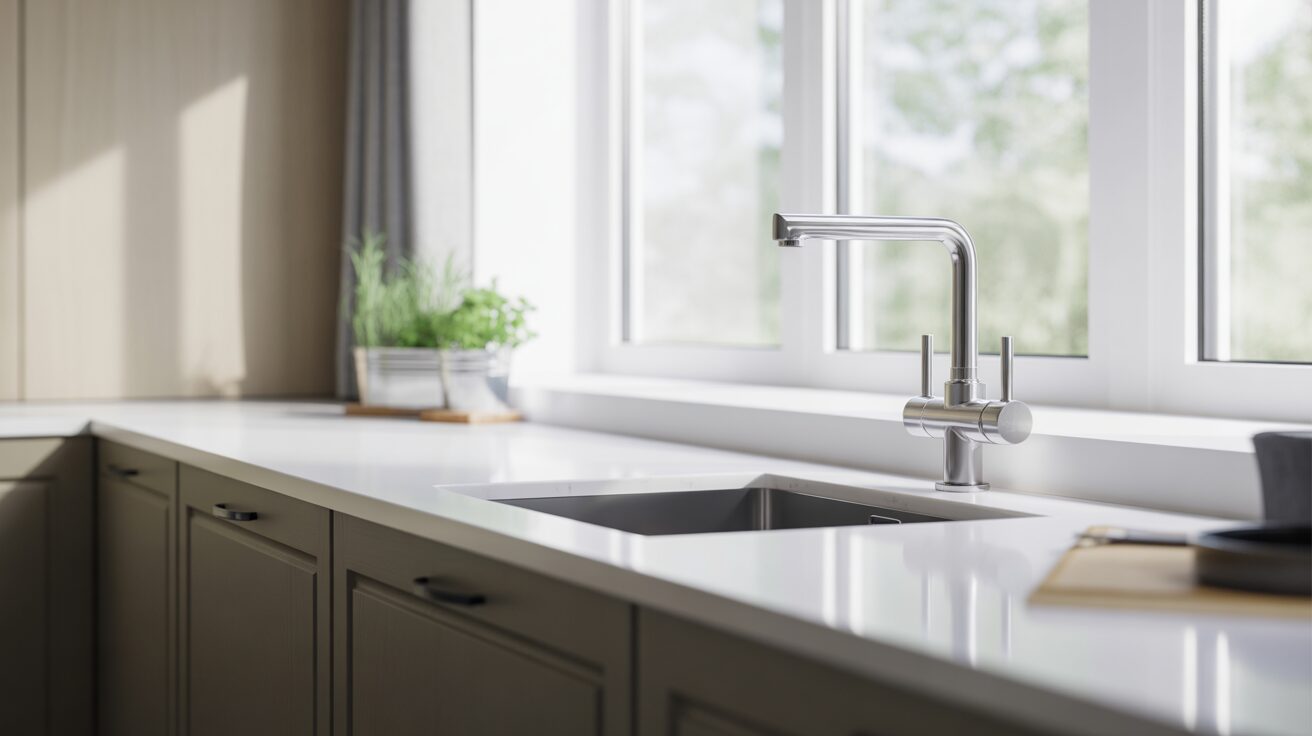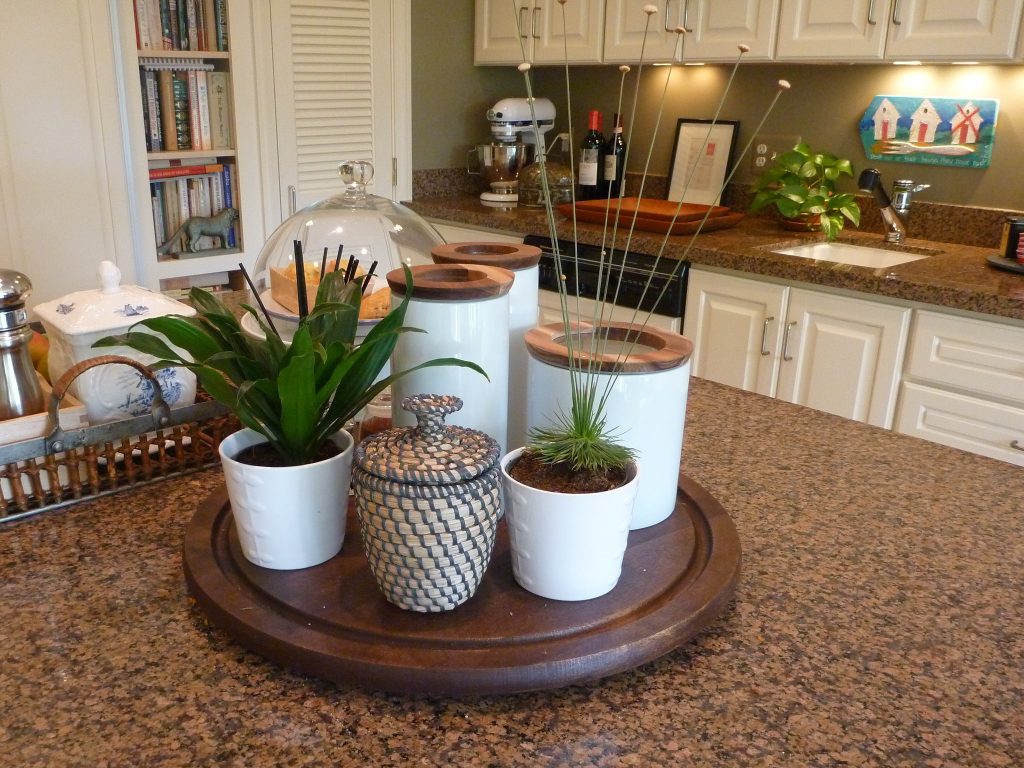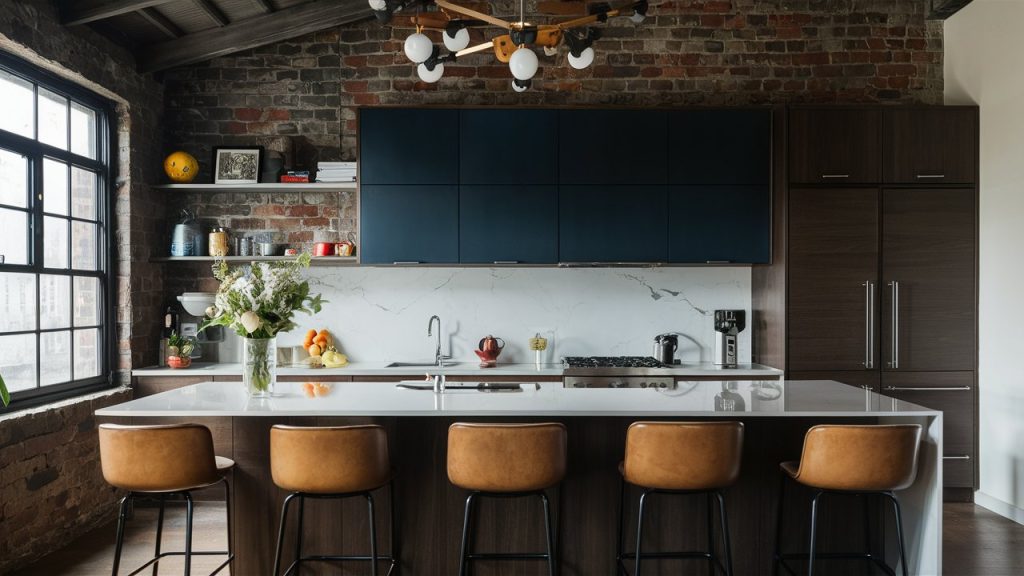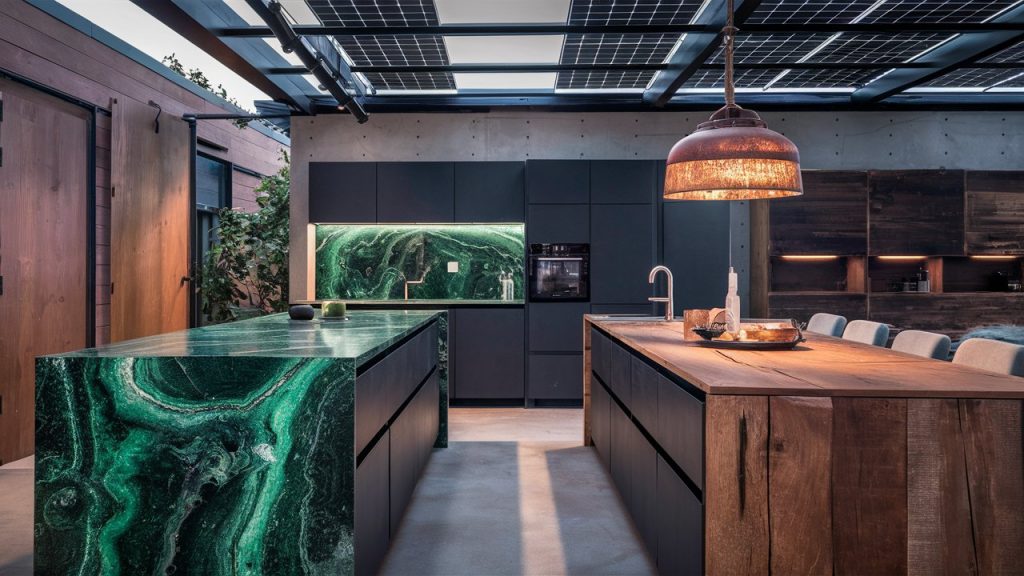When embarking on a kitchen remodel, the choice of countertop material is one of the most important decisions you’ll make. The debate between quartz countertops vs granite countertops continues to dominate conversations among homeowners, contractors, and designers alike. Each material offers distinct advantages and some trade-offs in terms of durability, cost, maintenance, and aesthetic appeal. For quality-focused, design-conscious homeowners with a mid to high budget, understanding these differences can alleviate confusion and guide a decision that balances beauty with practicality.
Quartz and granite have become the gold standards in countertop surfaces for a reason: they both deliver exceptional performance and timeless appeal. But which is truly the best fit for your kitchen? This buyer’s guide dives deep into the nuances of these materials, providing real-world examples, expert insights, and practical advice to ensure your investment stands the test of time.
Key Takeaways
Table of Contents
Understanding the Materials: Engineered Stone vs Natural Stone
Quartz and granite may look similar at a glance, but their origins and compositions set them worlds apart. Quartz countertops are categorized as engineered stone, composed primarily of about 90-95% natural quartz crystals, bound together by resins and pigments. This manufacturing process allows manufacturers to control color, pattern, and texture, offering homeowners a consistent and customizable appearance. Because quartz is engineered, it’s non-porous and doesn’t require sealing, which enhances its resistance to staining and bacterial growth.
Granite, by contrast, is a natural igneous rock formed over millions of years beneath the Earth’s surface. It features a rich tapestry of minerals like quartz, feldspar, and mica, which create the distinctive flecks and veins unique to every slab. The inherent variability of granite ensures that no two countertops are alike — a trait highly prized by homeowners seeking a natural, authentic look. However, granite is porous by nature, which makes it vulnerable to staining and bacterial infiltration if not properly sealed and maintained.
Real-world applications highlight these material differences clearly. For example, a high-traffic family kitchen that endures constant meal prep and spills benefits greatly from quartz’s non-porous qualities, making cleanup quick and easy. Meanwhile, luxury kitchens emphasizing classic elegance often choose granite slabs for their unparalleled natural beauty and heat tolerance, perfect for avid cooks who frequently use hot pots and pans.
Durability Comparison: Quartz vs Granite
Durability is a cornerstone consideration for anyone investing in kitchen countertops. Both quartz and granite offer excellent longevity, but they excel in different ways, impacting their suitability for varying household needs.
Quartz countertops are engineered with toughness in mind. The combination of crushed quartz and resin creates a surface that resists scratches, chips, and staining more effectively than many natural stones. Thanks to its non-porous surface, quartz does not harbor bacteria or absorb liquids, which minimizes the risk of discoloration from wine, coffee, or oil spills. However, quartz’s resin content makes it more sensitive to heat than granite. High temperatures can cause resin to discolor or crack, so placing hot cookware directly on quartz is generally discouraged.
Granite’s hardness makes it remarkably resilient against heat, often tolerating direct contact with hot pots and pans without damage. It is also very scratch-resistant due to the crystalline structure of the stone. But granite’s natural fissures can sometimes develop small chips if subjected to heavy impact. Another factor is granite’s porosity, which means it can absorb liquids if not sealed regularly, potentially leading to staining over time.
The table below summarizes the durability features of both materials:
Durability Factor | Quartz Countertops | Granite Countertops |
|---|---|---|
Scratch Resistance | High—resin enhances toughness | Very high—natural hardness |
Heat Resistance | Moderate—can be damaged by heat | Excellent—can withstand hot objects |
Stain Resistance | Excellent—non-porous surface | Good—requires sealing |
Chip/Crack Resistance | Durable but resin can chip/crack | Durable but natural fissures possible |
In practice, homeowners with active cooking styles or families with children find quartz’s low-maintenance durability appealing, while granite remains a favorite among culinary enthusiasts who need a heat-tolerant workspace.
Cost Analysis: Granite vs Quartz Countertops
Budget considerations often tip the scales when selecting between quartz and granite countertops. Understanding both the upfront and long-term costs involved is essential to making a value-driven decision.
Quartz countertops generally command a higher initial price. The engineered manufacturing process, combined with the use of high-quality quartz crystals and resins, places quartz in the $50 to $100 per square foot range, including installation. However, quartz’s non-porous nature means it avoids the recurring costs of sealants and specialized cleaners.
Granite tends to be somewhat less expensive upfront, with typical prices ranging from $40 to $85 per square foot. The price variation largely depends on the rarity of the stone and the complexity of quarrying and fabrication. However, granite requires periodic sealing—usually every 1 to 2 years—to preserve its stain resistance, adding incremental maintenance costs. If sealing is neglected, the stone can stain or degrade, potentially requiring costly repairs or even replacement.
A comparison table helps clarify these cost dynamics:
Cost Component | Quartz Countertops | Granite Countertops |
|---|---|---|
Average Price per Sq. Ft | $50 – $100 | $40 – $85 |
Installation Cost | Moderate, requires skilled labor | Moderate, requires skilled labor |
Maintenance Cost | Low—no sealing needed | Moderate—regular sealing required |
Long-Term Value | High—minimal upkeep, durable | High—natural appeal boosts value |
Case studies of recent kitchen renovations in upscale neighborhoods show that while quartz costs more initially, many homeowners appreciate the peace of mind from minimal upkeep. Conversely, granite buyers often view the sealing process as an acceptable trade-off for owning a unique, natural stone centerpiece.
Maintenance Requirements for Granite and Quartz
Maintenance is a critical factor for busy homeowners who want countertops that withstand everyday use without demanding excessive care.
Granite requires more active maintenance due to its porous nature. Proper sealing forms a protective barrier against moisture and stains, preventing food acids, oils, or spills from penetrating the surface. Homeowners should apply a high-quality sealant every 12 to 24 months, depending on the stone’s usage intensity. Daily cleaning is straightforward — warm water and mild soap suffice — but abrasive cleaners or harsh chemicals should be avoided to preserve the sealant.
Quartz, by contrast, is virtually maintenance-free. Its engineered non-porous surface resists staining and bacterial buildup without the need for sealing. Cleaning quartz countertops is simple: a damp cloth and a mild detergent are all that’s needed to keep the surface gleaming. Avoid using harsh chemicals, bleach, or high-abrasion pads, as these can degrade the resin binding the quartz crystals.
For homeowners juggling family life and entertaining, quartz offers a major advantage by combining elegance with convenience. However, granite’s maintenance regimen is manageable if integrated into regular kitchen care routines, especially for those who appreciate the authenticity of natural stone.
Appearance and Design Considerations
Appearance is often the emotional cornerstone of countertop selection. Both quartz and granite offer stunning visual appeal but cater to different design philosophies.
Granite’s natural origins mean each slab showcases unique veining, mineral patterns, and a spectrum of earthy tones. Its irregularities and subtle imperfections add character, making it a favorite for homeowners who value organic, one-of-a-kind aesthetics. Granite also pairs beautifully with rustic, traditional, and eclectic kitchen styles.
Quartz, manufactured under controlled conditions, provides homeowners with a wider array of colors and patterns — from solid hues to intricate designs that mimic natural stone. This versatility suits contemporary, minimalist, or highly customized kitchen themes. The uniformity of quartz slabs ensures a consistent look, appealing to those who prefer symmetry and modern precision.
Both materials can be seamlessly integrated with cabinetry and backsplash options, providing flexibility to designers and homeowners alike.

Contemporary kitchen with sleek white quartz countertops and minimalist design
Pros and Cons of Quartz Countertops
Quartz countertops bring a blend of durability, design flexibility, and easy upkeep that appeals to many homeowners. Their engineered construction means colors and patterns are highly customizable, allowing perfect coordination with kitchen themes. Quartz’s non-porous surface is resistant to stains, mold, and bacteria, making it hygienic and family-friendly. Furthermore, quartz is scratch-resistant and requires no sealing, significantly reducing long-term maintenance.
However, quartz does have limitations. Heat resistance is lower compared to granite, as the resin binder can be damaged by hot pots or direct flames. This necessitates the use of trivets or hot pads. Some homeowners also feel quartz’s uniform patterns can lack the organic charm of natural stone, making it feel less authentic in rustic or traditional kitchens.
Despite these considerations, quartz’s balance of beauty and practicality makes it a popular choice for busy families and contemporary designs.
Pros and Cons of Granite Countertops
Granite remains a top choice for homeowners who prize the unmatched natural beauty and heat resistance it provides. Its unique mineral composition and organic patterns lend kitchens a distinctive, luxurious feel. Granite is extremely durable, able to handle the rigors of daily cooking, including hot pots and sharp utensils.
On the downside, granite’s porosity means it is vulnerable to stains and bacterial growth without regular sealing. Failure to maintain the seal can lead to discoloration and damage. Additionally, the variability in slabs can make matching sections difficult, potentially complicating large kitchen projects. Some granite surfaces can be rougher or less uniform, which may not appeal to everyone.
Yet, granite’s natural appeal, combined with proper care, ensures it remains a lasting, valuable centerpiece in many homes.
Making the Best Choice: Kitchen Countertop Comparison and Final Verdict
Choosing between quartz countertops vs granite countertops is ultimately a balance between lifestyle needs and aesthetic preferences. Quartz is an excellent option for those prioritizing low maintenance, stain resistance, and color consistency. It suits families, busy cooks, and modern kitchen designs that demand reliability and style.
Granite offers a timeless, authentic appearance with superior heat tolerance, ideal for culinary enthusiasts and homeowners embracing classic or rustic aesthetics. Its maintenance demands are higher, but many find the care worthwhile for the stone’s natural beauty and uniqueness.
Expert kitchen remodelers often recommend visiting stone yards and viewing slabs in natural light to appreciate granite’s depth or quartz’s uniformity firsthand. Real-life case studies from high-end remodels reveal that pairing quartz countertops with under-cabinet lighting enhances their sleek finish, while granite slabs serve as stunning focal points when contrasted with minimalist cabinetry.
Conclusion
Both quartz countertops vs granite countertops bring compelling benefits to kitchen remodeling projects. Quartz impresses with its ease of maintenance, uniform beauty, and hygienic surface. Granite captivates with its natural elegance, heat endurance, and unique character. Ultimately, the best choice aligns with your lifestyle, kitchen habits, and design goals.
Ready to make a confident decision for your kitchen? Learn more about the options and connect with professionals who can provide tailored advice and accurate estimates. Transform your kitchen with the perfect countertop today.
Frequently Asked Questions
Which is more durable, quartz or granite?
Both quartz and granite are highly durable materials. Quartz offers superior resistance to stains and scratches due to its engineered non-porous surface, making it ideal for busy kitchens. Granite, being a natural stone, is extremely heat-resistant and can handle direct contact with hot pots and pans better than quartz. However, granite may chip or crack if struck heavily. So, durability depends on the type of wear and tear your kitchen encounters.
How do granite and quartz compare in cost?
Quartz typically costs more upfront, ranging between $50 and $100 per square foot, including installation. Granite tends to be slightly less expensive, averaging $40 to $85 per square foot, but requires regular sealing and maintenance which adds to long-term costs. Quartz’s low maintenance can make it more cost-effective over time.
What are the pros and cons of quartz countertops?
Quartz countertops provide a non-porous, stain-resistant, and low-maintenance surface that comes in a wide variety of colors and patterns. They are ideal for families and busy kitchens. However, quartz is sensitive to heat and can be damaged by hot cookware. Its engineered look may lack the natural uniqueness that some homeowners desire.
How do you maintain granite countertops?
Granite countertops need to be sealed regularly, usually once every 12 to 24 months, to protect against stains and bacterial buildup. Daily cleaning with mild soap and water is recommended. Avoid acidic or abrasive cleaners to maintain the sealant and keep the surface looking pristine.
Are engineered stone countertops better than natural stone?
Engineered stone like quartz offers consistency in color and pattern, superior stain resistance, and minimal maintenance. Natural stone like granite provides unique, organic patterns and excellent heat resistance but requires more upkeep. The choice depends on your aesthetic preferences and lifestyle needs.
Which countertop material is best for heat resistance?
Granite is more heat-resistant than quartz. It can tolerate hot pots and pans directly on its surface without damage. Quartz’s resin binder can be damaged by excessive heat, so using trivets or hot pads is essential to protect quartz countertops.

Robert Martin is a passionate blogger and versatile content creator exploring the intersections of personal finance, technology, lifestyle, and culture. With a strong background in financial literacy and entrepreneurship, he helps readers make smarter money moves, build sustainable side hustles, and achieve financial independence.
Beyond finance, Robert shares his insights on home decor and gardening—offering practical ideas for creating beautiful, functional living spaces that inspire comfort and creativity. He also dives into the dynamic worlds of sports and celebrity news, blending entertainment with thoughtful commentary on trends that shape today’s pop culture.
From decoding the latest fintech innovations to spotlighting everyday success stories, Robert delivers content that’s informative, relatable, and actionable. His mission is to empower readers to live well-rounded, financially confident lives while staying inspired, informed, and ahead of the curve.




